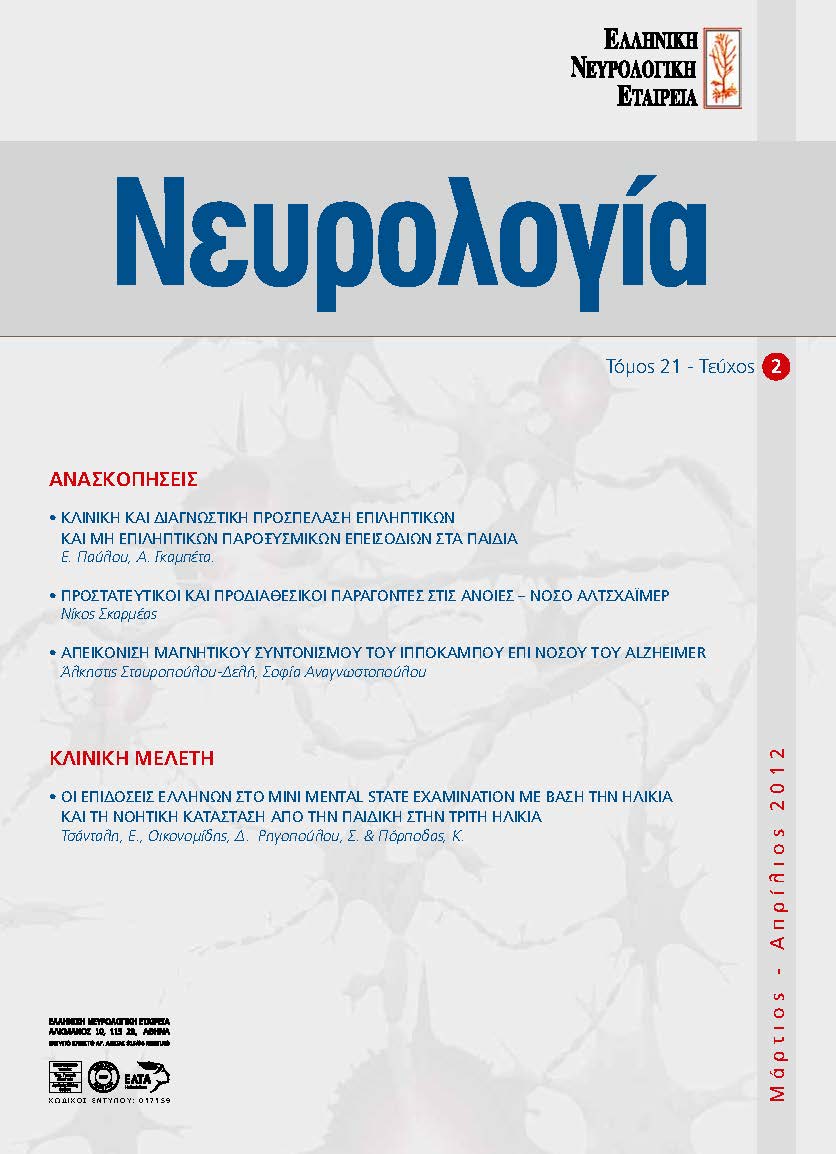The Greek performance in the MMSE scores according to age and mental state from childhood to aging
Keywords:
dementia, mmSe, Alzheimer, cognitive performance, children, elderlyAbstract
In everyday clinical practice, clinicians administer screening tools for the assessment of mental disorders usually underestimating the variables of age and years of education. the aim of this study 1) is to provide a percentile table of quick cognitive assessment, useful in clinical practice considering the variables of age and years of education in the mini mental State examination (mmSe) scores and 2) to compare the cognitive decline according to age. We also investigate the start time of cognitive decline indications in old adults. method: our sample were 1114 greek participants aged 7-15 and 46-90 years old without dementia, with mild cognitive impairment (mCi) and dementia of Alzheimer’s type (Ad) according to 3 stages (mild, moderate, severe). results: the variables of age, years of education and mental status affected the performance on the mmSe scores. the smallest variation was found in adolescents (13-15 years old), while the biggest in old elderly, 71-90 years old. patients with mCi had achieved 0.18 standard deviation (Sd) lower than the first grades of elementary school pupils, whereas Ad patients of all stages performed an average 3.2 Sd significant lower compared to that of the first grades children. Conclusion: patients with mCi have showed a similar performance in the mmSe scores comparable to that of children of the first grade of elementary school, while the performance of dementia patients from the first to the severe stages of the disease is significantly lower than that of children with a range of 1.72 -6.4


